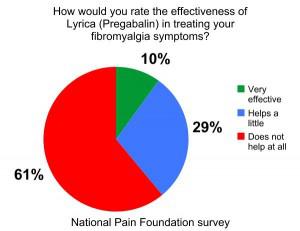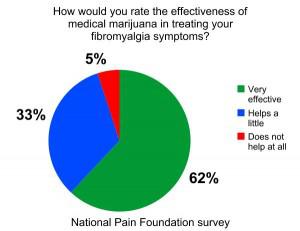An American US-Based Seed Company
Medical Marijuana and Fibromyalgia |
Marijuana Rated Most Effective for Treating Fibromyalgia Medical marijuana is far more effective at treating symptoms of fibromyalgia than any of the three prescription drugs approved by the Food and Drug Administration to treat the disorder. That is one of the surprise findings in an online survey of over 1,300 fibromyalgia patients conducted by the National Pain Foundation and National Pain Report.
The FDA has approved only three drugs – Cymbalta, Lyrica and Savella — for the treatment of fibromyalgia. Although they generate billions of dollars in annual sales for Pfizer, Eli Lilly, Forest Laboratories and other drug makers, most who have tried the medications say they don’t work. The National Institutes of Health estimates that 5 million Americans suffer from fibromyalgia, a poorly understood disorder characterized by deep tissue pain, fatigue, headaches, depression, and lack of sleep. There is no known cure and the disorder is difficult to treat. “Fibromyalgia is devastating for those who must live in its grip. There is much we do not understand. We need innovative ‘out of the box’ solutions that change the face of this disease,” said Dan Bennett, MD, an interventional spine and pain surgical physician in Denver, Colorado, who is chairman of the National Pain Foundation.
Many who responded to the survey said they had tried all three FDA approved drugs. “The prescriptions that are available for treatment have more negative side effects than positive aspects,” said one fibromyalgia sufferer. “I haven’t found anything! Please find a cure or at least a medicine that will take our pain away,” said another. Asked to rate the effectiveness of Eli Lilly’s Cymbalta (Duloxetine), 60% of those who tried the drug said it did not work for them. Only 8% said it was very effective and 32% said it helps a little. Among those who tried Pfizer’s Lyrica (Pregabalin), 61% said it did not work at all. Only 10% said it was very effective and 29% said it helps a little.
Asked to rate the effectiveness of Forest Laboratories’ Savella (Milnacipran), 68% of those who said they tried the drug said it didn’t work. Only 10% said it was very effective and 22% said it helps a little. About 70% of the people who responded to the survey said they had not tried medical marijuana – which is not surprising given that it is still illegal in most states and many countries. But those who have tried marijuana said it was far more effective than any of the FDA-approved drugs. Sixty-two percent who have tried cannabis said it was very effective at treating their fibromyalgia symptoms. Another 33% said it helped a little and only 5% said it did not help at all. “I’ve found nothing that has worked for me, apart from marijuana,” said one survey respondent.
“Nothing but medical marijuana has made the greatest dent in the pain and mental problems,” said another. “Marijuana does help a LOT it numbs the pain. But it doesn’t last long and it makes your brain foggy,” wrote another fibromyalgia sufferer. Survey respondents said massage, swimming, acupuncture, muscle relaxers and other alternative treatments also helped relieve their symptoms. Many said they take opioids to relieve their pain – although narcotic painkillers are generally not prescribed to treat fibromyalgia. Other survey findings: Four out of ten (43%) fibromyalgia sufferers feel their physician is not knowledgeable about the disorder. “I was once an active person and have now virtually become a hermit due to this disease,” said one. “The worst thing about having fibromyalgia is disappointing loved ones when I can’t do things with them,” wrote one fibromyalgia sufferer. “Having fibromyalgia is a life sentence. One simply cannot have a productive life living with this disease,” said another. The 1,339 people who participated in the survey were self-selected as fibromyalgia sufferers. Ninety-six percent of them were female. This was the second online survey of pain patients conducted by the National Pain Foundation and National Pain Report. The first survey found that over half of patients worry that they are perceived as “drug addicts” by pharmacists. Eight out of ten said they had stopped seeing a doctor because they felt they were treated poorly.
More Fibromyalgia Research
Fibromyalgia is a chronic pain syndrome of unknown etiology. The disease is characterized by widespread musculoskeletal pain, fatigue, and multiple tender points in the neck, spine, shoulders, and hips. An estimated 3 to 6 million Americans are afflicted by fibromyalgia, which is often poorly controlled by standard pain medications. Fibromyalgia patients frequently self-report using cannabis therapeutically to treat symptoms of the disease, and physicians – where legal to do so – often recommend the use of cannabis to treat musculoskeletal disorders. To date however, only one clinical trial is available in the scientific literature assessing the use of cannabinoids to treat the disease. Writing in the July 2006 issue of the journal Current Medical Research and Opinion, investigators at Germany's University of Heidelberg evaluated the analgesic effects of oral THC in nine patients with fibromyalgia over a 3-month period. Subjects in the trial were administered daily doses of 2.5 to 15 mg of THC, but received no other pain medication during the trial. Among those participants who completed the trial, all reported a significant reduction in daily recorded pain and electronically induced pain. Previous clinical and preclinical trials have shown that both naturally occurring and endogenous cannabinoids hold analgesic qualities, particularly in the treatment of cancer pain and neuropathic pain, both of which are poorly treated by conventional opioids. As a result, some experts have suggested that cannabinoid agonists would be applicable for the treatment of chronic pain conditions unresponsive to opioid analgesics such as fibromyalgia, and they theorize that the disease may be associated with an underlying clinical deficiency of the endocannabinoid system. |
|
WANT MORE Strains in Stock
Download our full list of Holi Moli Genetics
Are Marijuana Seeds Legal to Own or sell?
DEA Says YES according to emails from the DEA, marijuana seeds have no THC content so the schedule 1 drug laws would not apply to marijuana seeds.
Where can I buy seeds?
HoliMoli Seed bank provides great value, fresh high-quality seeds. We have the best Landrace strains, Feminized strains, fast strains, CBD or Autoflowering strains, Whether you call them weed seeds, hemp seeds or beans. Get Them TODAY





